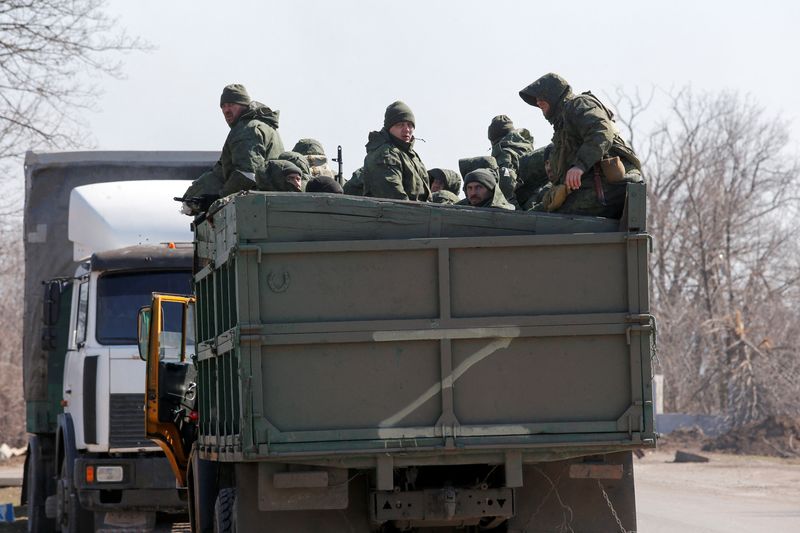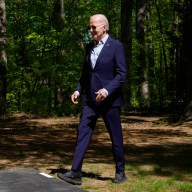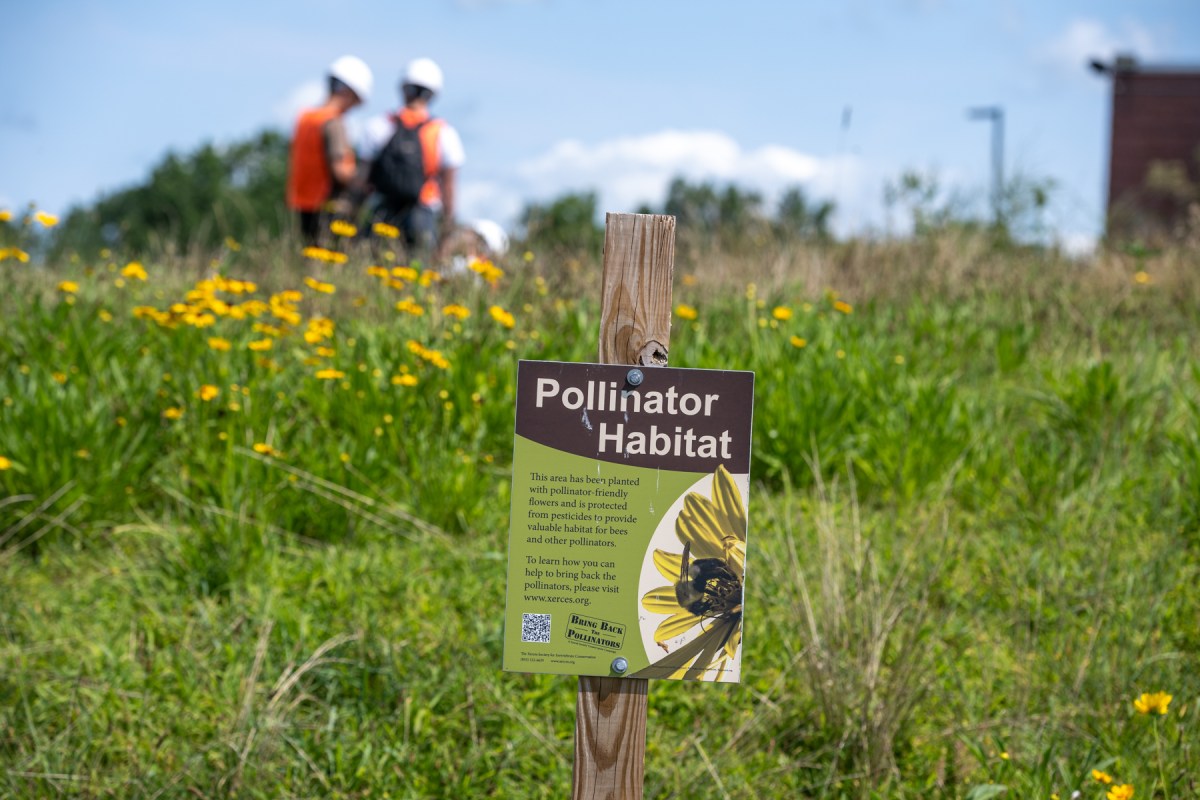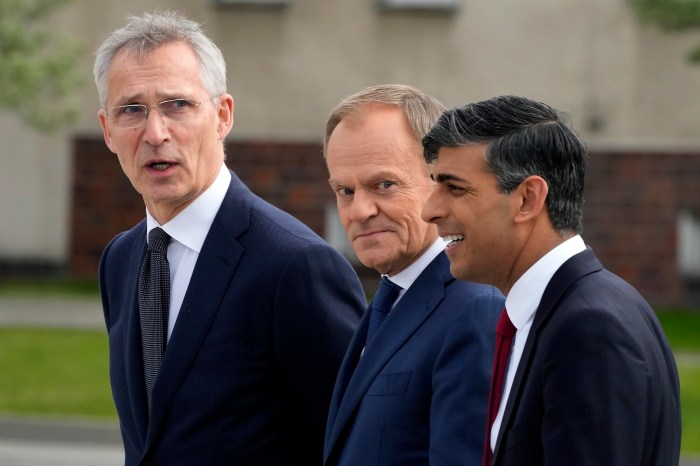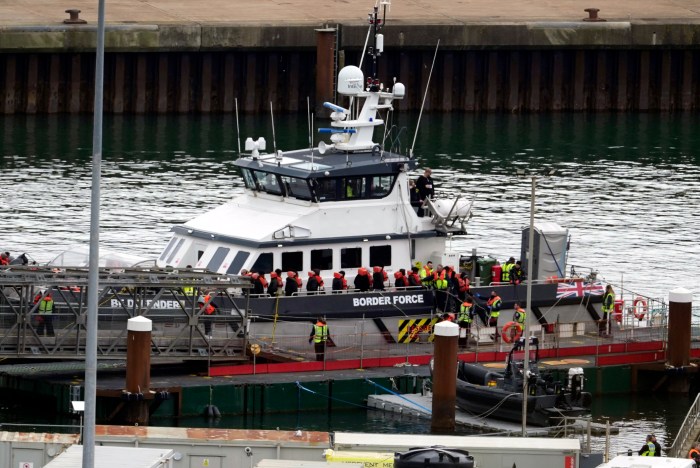LONDON (Reuters) – Local officials in Russia’s Belgorod region bordering Ukraine have set up collection points where citizens can drop off donations of socks, medicine and tinned food for Russian troops fighting in Ukraine, according to messages from the officials seen by Reuters.
Officials told local residents that Russian troops already had everything they needed, but that since citizens had expressed a desire to help, the local administrations had decided to accommodate those wishes.
The head of one district administration said in a message that the aim was to provide troops with home comforts to supplement their basic supplies.
Nearly a month after the invasion began, Russian military advances have slowed and supply lines are being disrupted by Ukrainian troops, leading to logistics problems, according to NATO member states and Ukraine’s government. The Kremlin says the operation is on track.
A notice attached with Scotch tape to the door of a grocery store in the Korochansky district of Belgorod region said that aid collection points had been set up in the local administration building in the nearby village of Shlyakhovo.
A resident, who did not want to be identified, said he saw the notice on Saturday, and sent Reuters a photograph.
The notice, which was unsigned, said: “Friends, right now for our military the most important thing is medicine: strong pain relief, cold medicine, cough tablets, bandages, syringes, insulin, Novocaine, Lidocaine.”
“We are also accepting personal hygiene items, socks, hats, gloves, thermal underwear, cigarettes, head torches.”
A person answering the telephone at the Shlyakhovo administration on Monday, when asked about the notice, said donations for the military could be dropped off at the administration building.
Reuters sent requests for comment to the defence ministry in Moscow, the administration of the Belgorod region and the administration of Shlyakhovo village. None responded.
HOME COMFORTS
Local administration chiefs in three other localities in Belgorod region – the Graivoron, Krasnoyaruzhskiy and Belgorodsky districts – informed residents via social media on Feb. 27 that they had opened collection points for the military.
The governor of Belgorod region, Vyacheslav Gladkov, sent a similar message to local residents on March 3. All four officials said in their messages, posted on the VK social network, that the military had the supplies they needed.
“But they need our support and simple human attention: right now they really need a touch of home comfort, to defend our homeland,” wrote Gennady Bondarev, head of the Graivoron administration. The items he solicited included water, non-perishable food and cereal grains.
Some of the district chiefs said that, in parallel with help for the military, they were collecting donations for civilians who had fled the fighting.
Officials in the three districts were still collecting supplies for the military, people in their offices said. Reuters could not independently verify the scale of the public response.
The administrations in the three districts did not respond to Reuters requests for comment.
In the city of Belgorod, the head of a neighbourhood resident’s association sent out an appeal last week to the residents’ group chat in messaging app Viber, asking for aid for troops.
A resident included in the chat, who did not want to be identified, shared the messages with Reuters.
The items requested by the association head in the chat included compasses, analogue watches, and AA and AAA batteries.
Another resident in a different part of Belgorod region, who lives within walking distance of the Russian-Ukrainian border, said he had handed over donated supplies to Russian troops.
He told Reuters on Friday that he had collected donations from local residents several times, loaded them into a van, and driven to the border where the supplies were transferred to an armoured personnel carrier and taken into Ukraine.
He said he had handed over tea, food, and undergarments.
(Editing by Mike Collett-White)

